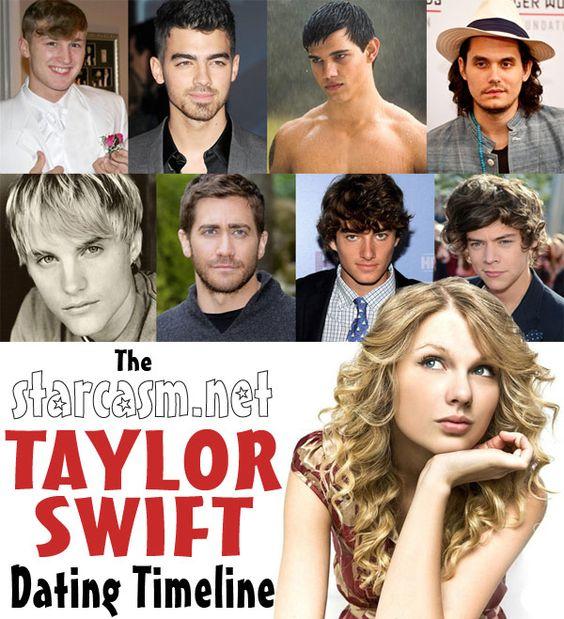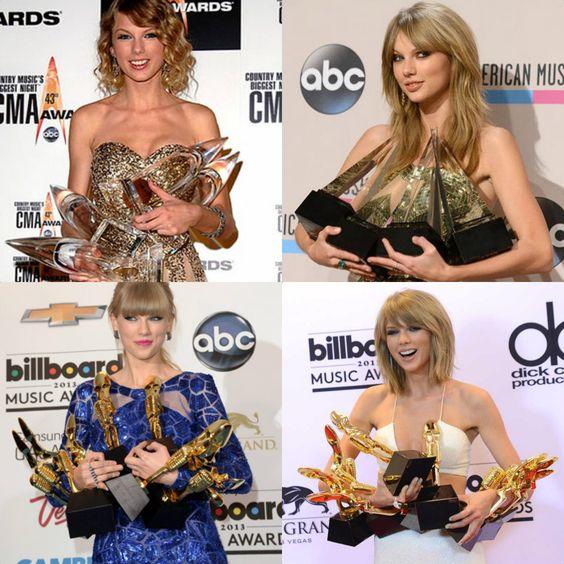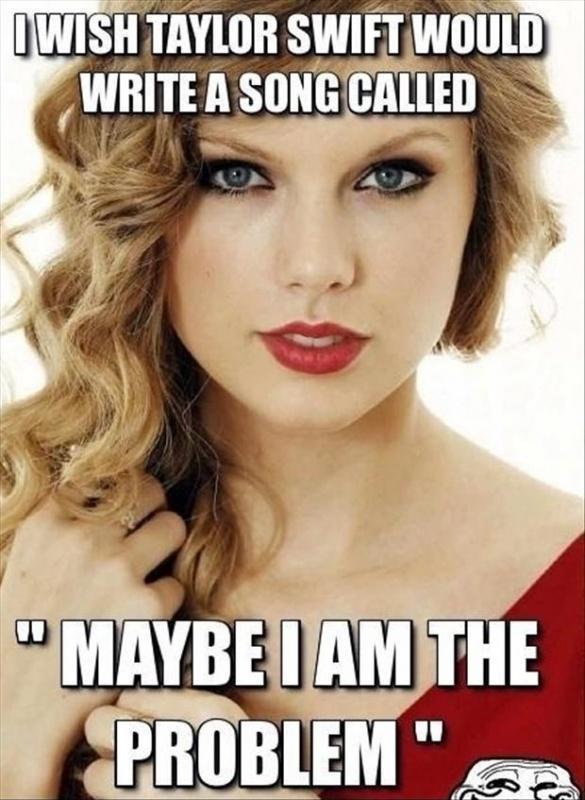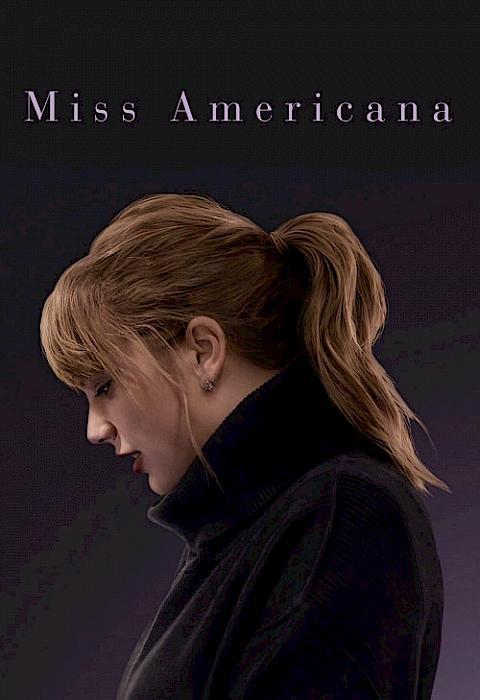
Taylor Swift's “Fearless”: A feminist analysis
Taylor Swift, who has not heard of her? The 31-year-old singer-songwriter has been in the public eye for over a decade and does not intend well to stop anytime soon. She is among the best-selling music artists of all time, with over 200 million records sold worldwide. With lots of smash hits from different genres like “Love Story”, “Shake It Off”, “Look What You Made Me Do” and “ME!” Taylor has left a great mark on music. This mark was rewarded with the award “Woman of the Decade” by Women in Music and Billboard in 2019, concluding a decade of heartfelt music, tours and documentaries. This glamorous life also has seen the other side of fame: negativity, celebrity drama and sexism. Her music was even sold to investors without her consent, to which she reacted by asking her fans to boycott her “old” music and start to record “new” versions of her previous songs, naming them “Taylor’s Version.”
Taylor Swift: Fearless
Fearless is the second studio album by Taylor Swift. It was released on November 11, 2008, by Big Machine Records in the U.S. and Canada, and an international edition was released on March 9, 2009. It was written by Swift while promoting her 2006 eponymous debut album in 2007–2008, Fearless features additional songwriting credits from Liz Rose, Hillary Lindsey, Colbie Caillat, and John Rich. Fearless is a country pop album featuring traditional country instruments, such as banjos, fiddles, mandolins, and acoustic guitars, intertwined with electric guitars. We will look at these instances and analyze how Taylor embedded these trying times of her career in her 15-minute acceptance speech for the Woman of the Decade Award and came out of mistreatment by the public and the industry more powerful than ever. In this article, answers will be given to the question, “Can Taylor Swift be considered a feminist?” This aim is to be carried out through the concepts of (cyber)sexism, stereotypes, the Art/Life problem and celebrity feminism.
(Cyber)Sexism
Throughout Taylor’s career, she has received quite some sexism just for being a female music artist. She revealed that at first, she did not feel like there was sexism in the music industry but was simply “too young,” having put out her first album at just 16 years old. It was later in her career that she started to notice. Taylor Swift has openly been a feminist for years and has fought for the equality of genders, especially in the music industry. In her acceptance speech for Woman of the Decade, Taylor asks the (mostly female) audience why female artists have done so well in terms of growth, records, ticket sales and streaming in the past decade. She answers this question herself, “Because we have to grow fast. We have to work this hard; we have to prove that we deserve this…” followed by “[Women in the music industry] are held at a higher, sometimes impossible-feeling standard.” One of the characteristics most hated in Taylor Swift’s music is that a significant portion of the lyrics is about love. At one point, it was even the standard to hate her as a person just because she wrote songs about her past romantic experiences. Even in 2021, after Netflix released a documentary about Taylor Swift and her journey through fame, which has been full of the most positive and negative experiences, she still made a joke on the show “Ginny & Georgia.” In the scene, Ginny said, “What do you care? You go through men faster than Taylor Swift.” This cliché is a prime example of sexism through stereotypes. Taylor herself commented on the “joke” by tweeting that “2010 called, and it wants its lazy, deeply sexist joke back.”

An online article about a timeline of Taylor Swift's exes
Stereotypes
This brings us to the concept of stereotypes. As Ott and Mack (2014) discussed, stereotyping is the “misleading and simplified representation of a particular social group." Globally, we see a binary understanding of gender, of what is masculine and feminine. This also applies to the music industry. On the feminine side of stereotypes, we see a passive, weak, caring, beautiful and reserved image that is also a sex object. What is seen in our case study of Taylor Swift’s career, as described in her acceptance speech, are some stereotypes used to her disadvantage. Examples here are that she is the girl who writes about her ex-boyfriends, dates a lot (too much), relies on others (men) to write her songs, and is only famous because of their label, someone who is fake and non-intelligent. Taylor herself explains these accusations and stereotypes as something that just “happens to a woman in music if she achieves success or power beyond people’s comfort level.” There is growth in that, at first, Taylor handled these stereotypes by proving them wrong; by not dating for years, by over-correcting, firing all her co-writers, and basically accommodating every one of the negative, stereotypical sexist voices. Through the years, she has become empowered to create and do what only she wants, not thinking of the “Swift” backlash. She also argues that in the last decade of being in the music industry, she has seen women being “criticized and measured up to each other and picked at for their bodies, their romantic lives, their fashion, or have you ever heard someone say about a male artist, “I like his songs, but I don’t know what it is, there’s just something about him I don’t like?” No! That criticism is reserved for us!”. This implies the audience is filled with influential women. Taylor Swift has shown that by accepting the (sometimes ridiculous) challenges set for female music artists but realizing that they are not your standards, you can become more powerful than ever, even by doing whatever you want. Through making her music, defending her rights constantly and raising awareness for other sexist issues in the music industry, she has become one of the most prominent artists ever.

The Art/Life problem
There is a clear sketch of the dilemma of art and work in the case of Taylor Swift. This dilemma, as described by Pollock (2005) in The Artemisia Files: Artemisia Gentileschi for Feminists and Other Thinking People, is about whether art should be considered autonomous or part of a whole – where the context of the artist’s life is needed. An example of this is a painting where a woman is seen murdering a man, so the viewer thinks she is a murderer, a violent being. But when the whole context or story is revealed, we know that this man had treated her horribly: even sexually assaulted her. For Taylor Swift, this dilemma could also be a point of discussion: Is the art and life dilemma used against her, even in her attempts to be a feminist? Being a feminist is about standing up for equal rights and what you believe in. In the last decade of her career, Taylor has faced many situations full of hate and judgement, as we have seen many about her choice of song topics. When we zoom into this in terms of the art and life problem, one might notice that when we listen to Taylor’s songs about breakups, toxic relationships or even happy love songs, it is not the whole story. We need the context behind the lyrics and metaphors to fully understand what she means – making her art non-autonomous. Art is about creating what you want, what you feel, and what you want to share, but when you’re constantly in the world's spotlight, this might be influenced if you are not fully confident. Taylor has proven that she is willing to share every bit of her heartbreak, her butterflies, her loneliness, her happiness, everything – despite the pressure of the “outside world” to respect her lover’s privacy or anonymity.

When we look at what art means to its artist, we see a special connection where the artist’s creation is only theirs, just to share with the world, especially with intimate lyrics and self-written songs. All of Taylor Swift’s discography was sold to investors without her consultation and consent. She was denied her request to purchase her music, and the investors, Scooter Braun’s Ithaca Holdings, along with other funders, did not even contact her, as she tells in her Woman of the Decade acceptance speech. She described how they might feel like they “bought” her – her music, videos, photos, handwriting, album design, everything. And after a long feud, she decided to take manner into her own hands and start to rerecord every album of hers, from which she has released three albums now, all under the name “Taylor’s Version.” She urges other (female) artists to take their music's rights and of their music and to fight for what they believe in.
Celebrity feminism
Rivers (2017) describes a “feminazi” where being a feminist is sketched as something negative: a hateful, unattractive man-hater. This has also been the case for Taylor, which is very visible through social media. Hateful comments about how being dumped are her fault, or in the meme, we have seen above, how she is the problem. This has fortunately transformed throughout the decade. Taylor is even mentioned in Rivers (2017), “other notable examples of high-profile celebrity feminists include Taylor Swift, also previously known for publicly disavowing feminism.” But just like in Rivers (2017), there is also a division on whether people feel like Taylor, a celebrity and a feminist, is good or bad for feminism. People who think this is a positive have the following thought flow: Taylor has always spoken her truths and has become an inspiration to millions of people worldwide; pick up an instrument, sing, just write, and if it’s your truth, go with it. She is also mighty in the music industry, all thanks to herself, and can reach many people – which is excellent for spreading the message of feminism and everything behind it. Furthermore, the other side thinks of it like this: her songs are too boy-focused and only use feminism when it’s in her favor like it is just used for her empowerment, not for the whole movement. Here, people also refer to a problematic quote from 2012: “I don’t think about things as guys versus girls. I never have. I was raised by parents who brought me up to think if you work as hard as guys, you can go far in life”, which implies that stereotypically, men are more hardworking than women. Throughout the years, while making mistakes, Taylor Swift has proven that she is actively trying to make being a feminist less about a title, and more of an ethos, a way of life. Being a feminist as a celebrity (while also growing up and making mistakes in the eyes of the public) is messy. Still, it also pushes the feminist agenda to a broader level, offering opportunities. A great example is Netflix’ Miss Americana, which zooms in on what Taylor’s life has been like; the best and worst moments, alongside a side of her, that we rarely see on stage; political, feminist, vulnerable Taylor.

Feminist?
We had looked at a portion of Taylor Swift’s career in terms of concepts used in feminist studies about the acceptance speech she gave when she was awarded Woman of the Decade in 2019, which she concludes as follows: “And as for me, lately I’ve been focusing less on doing what they say I can’t do and more on doing whatever the hell I want. Thank you for a magnificent, happy, free, confused, sometimes lonely but mostly golden decade.” Having analyzed sexism, stereotypes, the art and life problem and celebrity feminism, one can conclude that Taylor Swift has been a feminist for far longer than the world has known and has kept onto her beliefs, which is (finally) acknowledged by a bigger and bigger audience. At first considered a feminazi, now mentioned by academic papers on celebrity feminism. Her efforts to bring to light how there are double standards, sexism, lack of feminism and hate in the music industry have inspired millions. Her public maturation has shown a feminist evolution, making her one of the top examples of feminist celebrities. Her openness in her lyrics, speeches and Netflix documentary has shown what it takes to be a woman, especially a Woman of the Decade.
References
Ott, B. L., & Mack, R. L. (2014). Feminist Analysis in Critical Media Studies, An Introduction, pp. 193-212.
Chappell, C. (2019, August 8). Taylor Swift says this was the moment she noticed sexism in the music industry. CNBC. Accessed on November 30 2021, https://www.cnbc.com/2019/08/08/taylor-swift-says-this-was-the-moment-sh...
Keishin Armstrong, J. (2016, January 7). Taylor Swift’s Feminist Evolution. Billboard. Accessed on November 30 2021, https://www.billboard.com/music/pop/taylor-swift-feminism-impact-7423962/
Poland, B. Don’t Feed the Trolls, Why Advice About Cybersexism Fails, Haters, Harassment, Abuse and Violence Online, 2016, pp. 61-87.
Pollock, G. Feminist Dilemmas with the Art/Life Problem in: Mieke Bal et al, The Artimesia Files, Artemisia Gentileshi for Feminists and Other Thinking People, Chicago & London: University of Chicago press, 2005, pp. 169-206.
Rivers, N. Celebrity Feminists selling Feminism, 2017, chapter 7.
Wikipedia contributors. (2021, December 5). Taylor Swift. Wikipedia. Accessed on November 30 2021, van https://en.wikipedia.org/wiki/Taylor_Swift